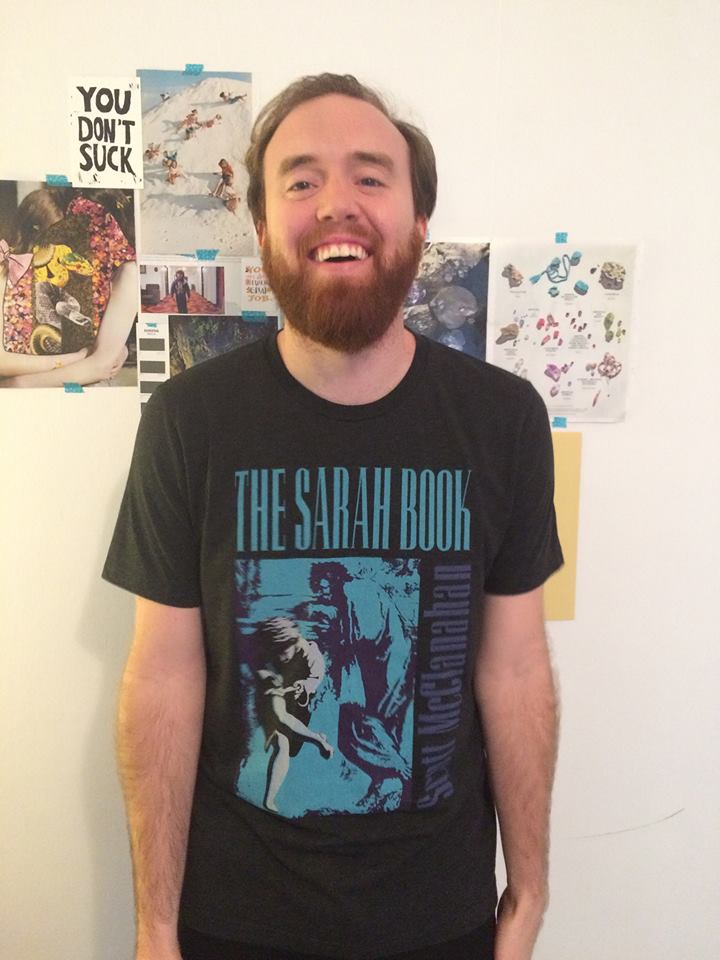Contributor Spotlight: Tyler Barton
 Tyler Barton’s story “Boots on the Ground” appears in Midwestern Gothic‘s Winter 2017 issue, out now.
Tyler Barton’s story “Boots on the Ground” appears in Midwestern Gothic‘s Winter 2017 issue, out now.
What’s your connection to the Midwest, and how has the region influenced your writing?
I moved from Lancaster, Pennsylvania to Mankato, Minnesota a year and a half ago for grad school, and before that my only connection was that once, in college, the 90’s frontier emo band Cap’n Jazz announced a reunion show in Chicago and me and all my friends bought tickets, but we never discussed who would drive the ten hours there and back for the concert. When the week of the concert rolled around, each of us explained with mechanical precision the reasons why our cars wouldn’t make it. It was like a competition to prove who had the worst vehicle. We argued. We didn’t go.
Minnesota has changed my writing by helping me to get up early and work every morning. I didn’t do that before. Maybe it’s just grad school, but I’d like to attribute that new writing habit to the beauty of the purple-pink sky outside my window nearly every morning. I swear it’s different than Pennsylvania.
What do you think is the most compelling aspect of the Midwest?
I like places and people with something to prove.
How do your experiences or memories of specific places—such as where you grew up, or a place you’ve visited that you can’t get out of your head—play a role in your writing?
The strongest place-based memories I have are the things I can never write. Or, at least, I can never write them well. I once saw this rain (here we go again) move across a lake. The rain came from a cloud that broke over the opposing mountain. I stood on the shore shirtless with my friends. We watched it start as a blurriness atop the far shore (about a half mile away). The wall of rain approached slowly but surely like a birthday. I didn’t cry but I wanted to. This was in Pennsylvania. Jim Thorpe, PA. This memory is too beautiful to ever get right through writing. So, what I’m trying to say is that the best memories of place are unwritable. My settings are often places I don’t know well at all, places I visited for a few days and that’s it. If I know the place to well I’ll constantly be disappointed in how it doesn’t feel real enough.
Discuss your writing process — inspirations, ideal environments, how you deal with writer’s block.
I have to create habits. What I’ve learned in grad school so far is how important it is to always look for new habits, invent different routines, and question and break my own habits as soon as they feel stale. In short, I like to write in the mornings at home and in the afternoons at cafes.
How can you tell when a piece of writing is finished?
Never. The last three times I got an acceptance, I had to immediately email the editor to say “Hey, can you look at the newest revision of this piece?” Some magazines take up to six months. I can’t go half a year without making changes to a piece. I can’t read a published piece of mine without thinking of better words to use or lines to cut.
Who is your favorite author (fiction writer or poet), and what draws you to their work?
All time is Vonnegut because of humor. Right now, it’s probably Lindsay Hunter because of energy–her stories never settle and every sentence is urgent.
What’s next for you?
I’m creating a flash fiction podcast called SHOW YR WORK. I’ll be interviewing a lot of writers at AWP 17 for this project. I’ll probably start releasing episodes this summer. Also, FEAR NO LIT, the literary organization I started with my partner Erin Dorney, will be launching a prize called the Submerging Writer Fellowship. It’ll provide one struggling writer with an honorarium, a chapbook, a release reading at AWP 18, and travel money to attend AWP 18.
Where can we find more information about you?
www.tsbarton.com / @goftyler / www.fearnolit.com






